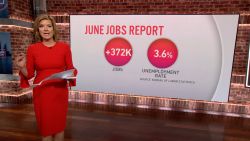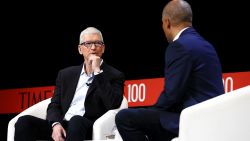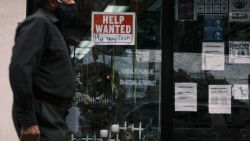The labor market is going strong, and job candidates have plenty of opportunities to choose from. So much so that some are bailing on their new employers before they even start.
More from Success
“People are getting multiple offers in a market like today, and they are not showing up on their first day of work,” said Paul McDonald, senior executive director at staffing firm Robert Half.
He pointed to the strong job market and low unemployment rate as the reason for this surge in ghosting by new hires.
Steve Lindner, CEO of employment firm the WorkPlace Group, was ghosted recently by a new hire. The applicant accepted an offer and passed the background check.
“We had already shared the name with our support team and had a training program in place. Everything was ready to go,” said Lindner.
And then no one showed up.
But at least this candidate called the next day to explain what happened. Another new hire failed to show on the first day 18 months ago and Lindner still has no idea what happened. “They just never arrived. It was complete job abandonment.”
The company called, emailed, texted and eventually had to send a formal letter terminating the employment.
The cost of a no-show
Flaking on the first day of work isn’t completely new. The move tends to flare up in hot job markets when job seekers have more power.
Jeremy Tolley, chief people officer at CareHere, said he started noticing more no-shows in 2016. That year, he said a dozen candidates didn’t show up for their first day. His company operates health and wellness centers for employers across the country.
To combat the problem, the company created a better career website and increased the amount of contact with candidates leading up to their first day to establish more of a relationship.
“We are creating a sense of obligation to this person,” he said. “That way it’s not just some company they don’t know much about, they start to think: ‘If I don’t show up, I will let them down, I know they are expecting and preparing for me.’”
When a new worker doesn’t show up, it means starting the expensive and time-consuming hiring process over. And that also puts pressure on existing employees.
“The morale effect is very real when someone doesn’t show up for the first day of work,” said McDonald. Employees often feel the toll when a position sits vacant for a long period of time.
It’s also not a good look when clients have been told about a new hire who doesn’t appear.
“It causes a lot of internal issues. The employer was counting on them and it could be embarrassing if customers and clients were also waiting for the arrival,” said Lindner.
Deserters beware
The job market is good right now, but it won’t always be this way. So it’s important to protect your brand and avoid burning bridges.
“When the job market turns… applicants who ghosted are going to have fewer job opportunities available to them,” warned Lindner.
Companies can take note of who didn’t show up for an interview or their first day, and that can come back to haunt you should you apply to the same company again later.
Plus, it’s a small world: You never know where you might run into that recruiter or hiring manager that you stood up later in your career.
Yes, it might be an uncomfortable conversation to have, but call and let an employer know you won’t be joining the team after all.
“Own your decision,” said Lindner. “Most prudent people will understand. I may be disappointed as an employer that you initially accepted my job and are turning me away, but I respect the call.”
Telling an employer you’ve decided to take another job offer can also open the door to negotiations.
“We understand the industry we are in and what the market is like,” said Tolley. “Sometimes this gives us an opportunity to counter the offer or figure out why you accepted another position. Maybe there is something we can do about that.”






















